Never Use Disposable Swabs Again With This Everlasting Beauty Kit
By Mikelle Leow, 06 Jul 2022
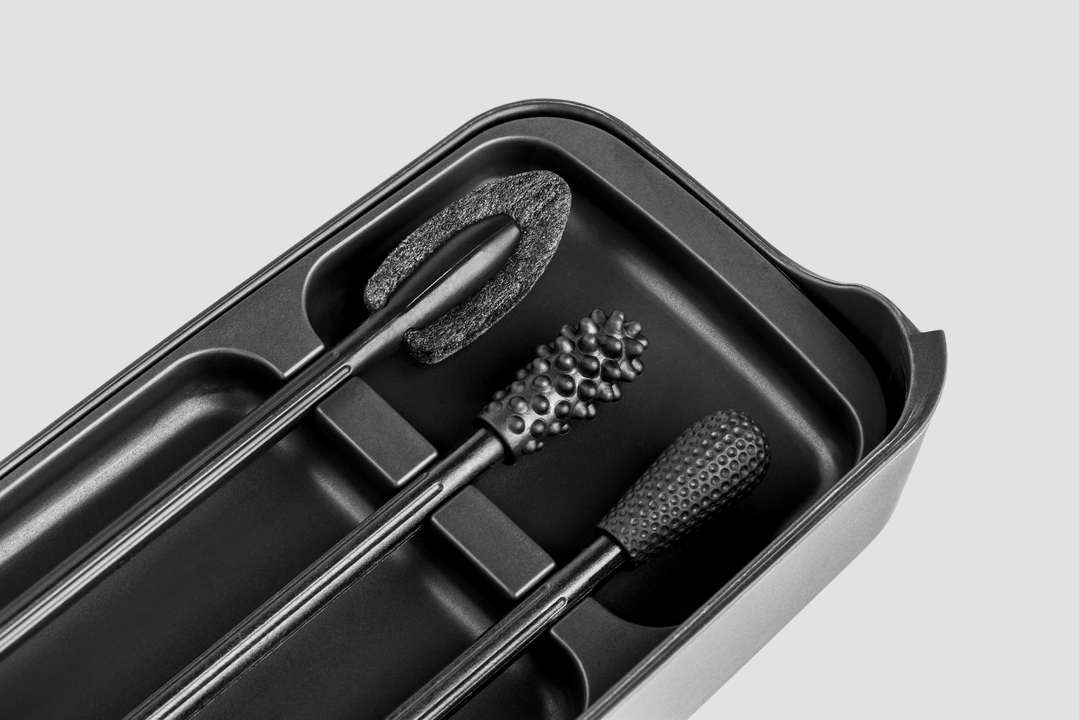
Image courtesy of LastObject
The cotton swab makes an ideal eraser for makeup mishaps, or—although experts have advised against it—an ear-cleaning tool. One wipe, one toss, and you’re done. But all this can’t be good for the fish and marine animals, who often end up swallowing these single-use sticks.
Danish eco design brand LastObject has made it its mission to make disposable everyday items non-disposable. Besides being the inventor of “the world’s first reusable Q-tip,” it’s also designed a reusable sanitary pad that stays dry and comfortable, and reusable tissues, among other things.
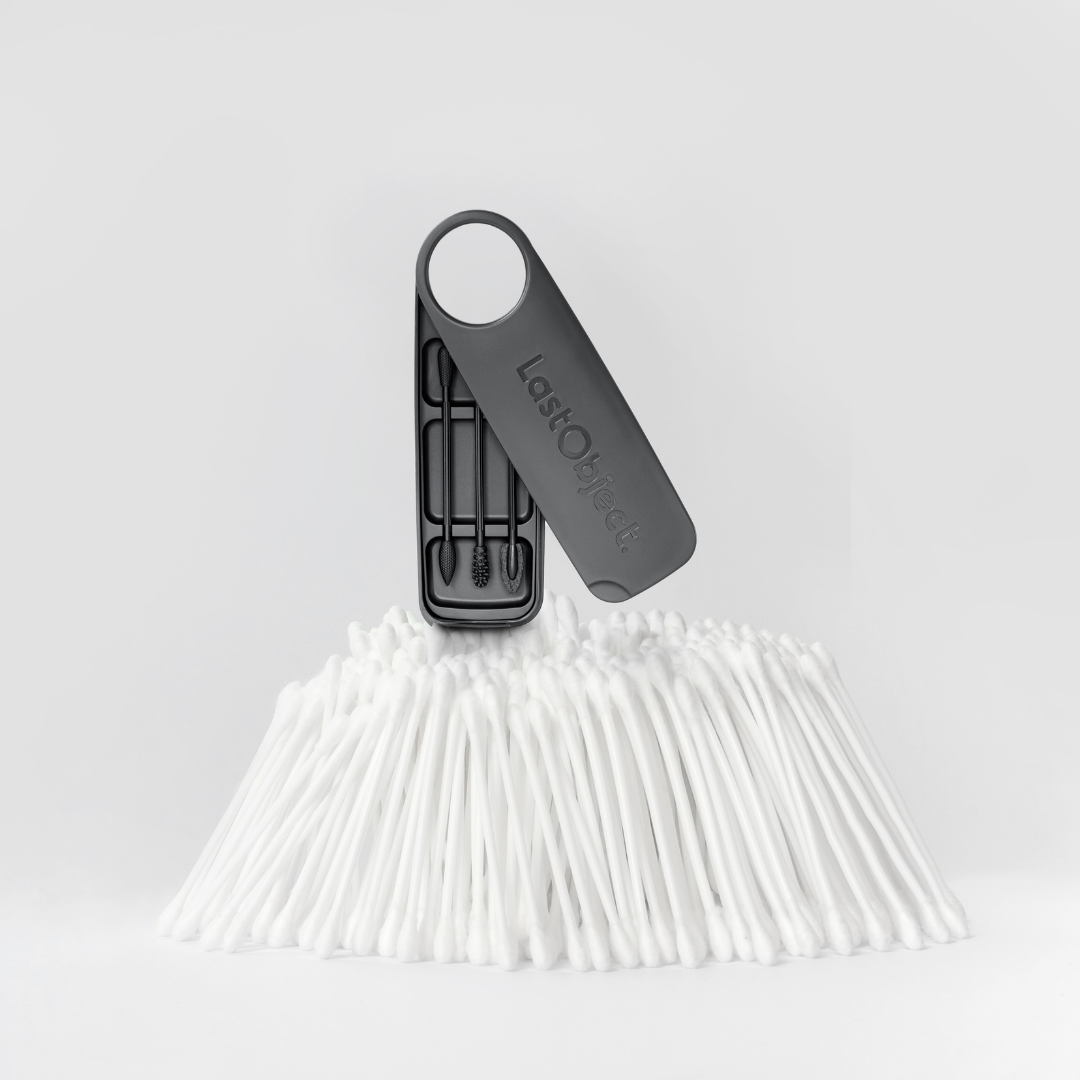
Image courtesy of LastObject
Its latest kit, now on Kickstarter mode, simplifies your beauty regime with three versions of reusable cotton swabs optimized for combing, blending, and touch-ups.
According to LastObject, each stick in the LastSwab Beauty Trio Pro kit has the longevity of 1,000 swabs, and they can easily be cleaned with soap and water.
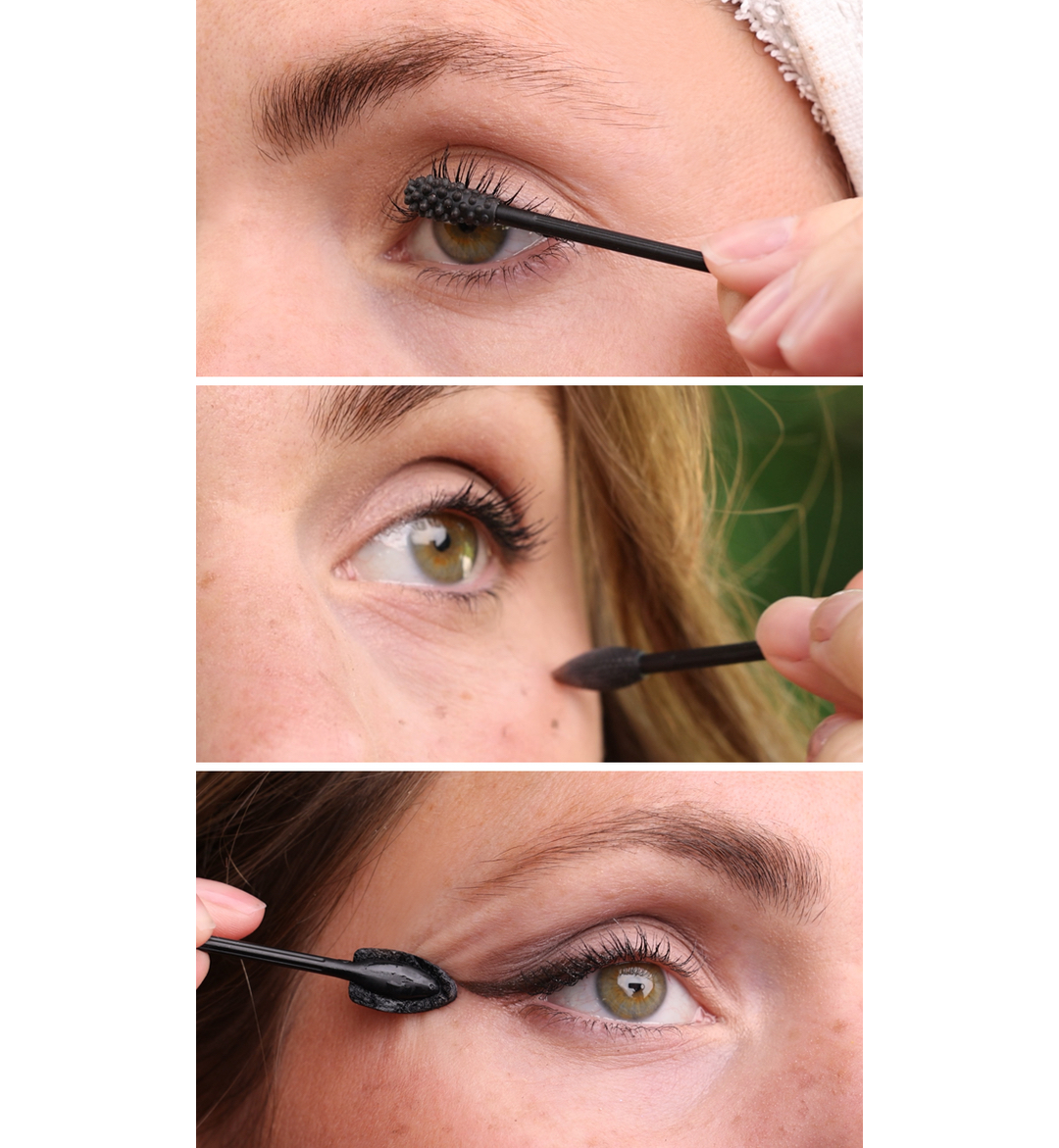
Image courtesy of LastObject
There’s the original ‘LastSwab’ that’s most like the Q-tip. In case you’re wondering, it can be used on ears too. The LastSwab Beauty swab has pointed tips for smudging and blending, while the all-new LastSwab Beauty Fix swab is absorbent and made for precise makeup corrections and for reaching tighter spaces.
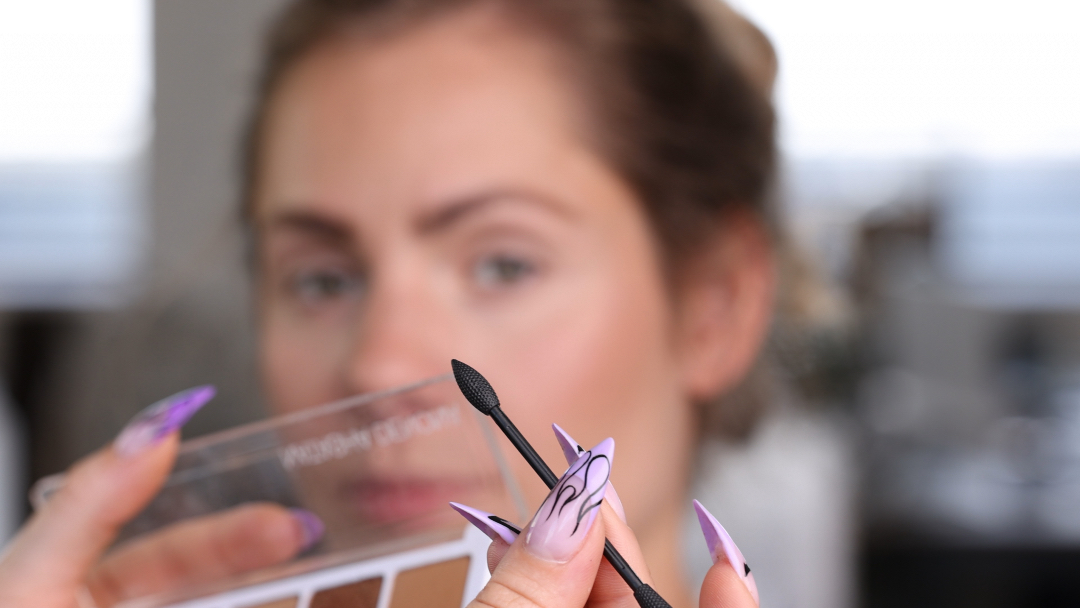
Image courtesy of LastObject
Each kit comes in a case constructed from ocean-bound plastic, AKA plastic waste that’s on its way to clogging up water bodies.
The cotton tips themselves are made from home-compostable cotton and wood fibers, while the rods consist of “a durable mix of materials that should be handled with household waste.” The swabs are encased in packaging crafted from home-compostable, cradle-to-cradle-certified cardboard.
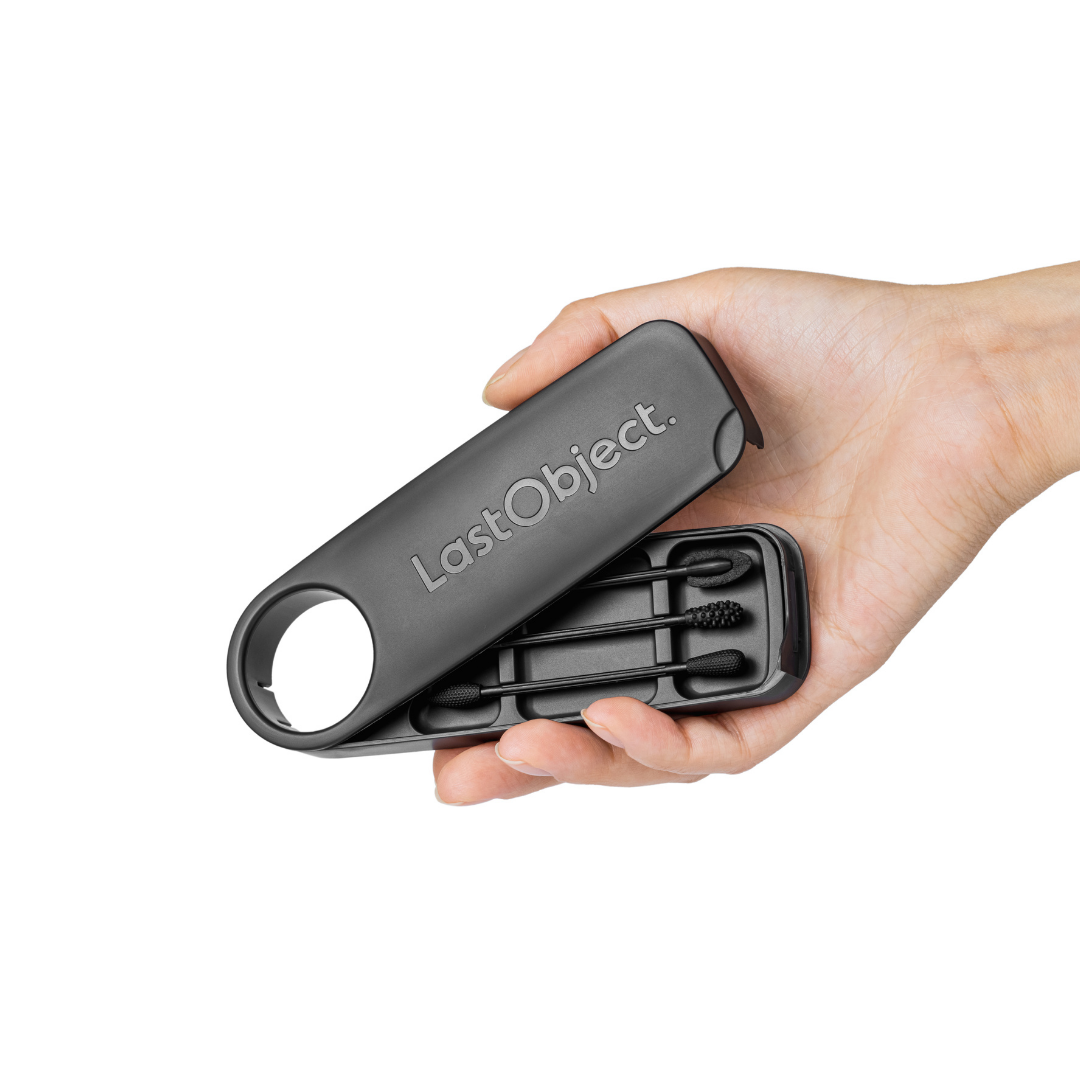
Image courtesy of LastObject
“With over 120 billion units of packaging produced [by the beauty industry] and turned to waste every year, it’s one of the biggest culprits when it comes to plastic pollution,” says LastObject founder Isabel Aagaard.
“The abundance of single-use products is a big part of the issue—that’s what we’re trying to solve,” Aagaard adds.
[via LastObject]





